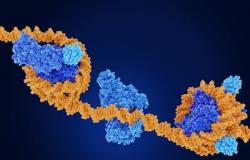Many people during pregnancy are afraid that they will do something that will induce a miscarriage. Has a miscarriage occurred? Then some even experience a great sense of guilt. But is this correct? Can you induce a miscarriage yourself? We asked gynecologist Norah van Mello. Spoiler: there’s really nothing you can do about it.
What can increase a miscarriage?
Miscarriage is common – and it can happen to anyone. However, some people have a miscarriage more often than others, but this does not mean that they induce a miscarriage through certain activities. “We know that age is an important factor, but we cannot immediately find a conclusive cause for many miscarriages,” says Van Mello. The risk of miscarriage also increases with repeated miscarriages, but ultimately only a small proportion of miscarriages are explained by a medical cause. We do know that the following factors can increase a miscarriage:
- Age over 35 years
- Smoking
- Alcohol abuse
- Overweight
- Medication use
- Untreated medical problems
Would you like to know more about the chances of a miscarriage? Read here whether the fear of a miscarriage is well-founded.
Can you cause a miscarriage yourself?
Many people are afraid of exercising or lifting a heavy shopping bag during early pregnancy, but this cannot induce a miscarriage. You cannot do anything about a miscarriage, because it is usually a natural selection process over which you have no influence. ‘Early development in pregnancy is a very protected process – and the early fetus is well protected by the uterus, a thick muscle wall and takes very good care of itself,’ Van Mello explains. Have you had a miscarriage? Then you really can’t do anything about it.
Can you induce a miscarriage?
There are no mild conditions in your daily activities that can trigger a miscarriage. Is it a non-vital pregnancy, but has no miscarriage occurred yet? Then you can choose to induce the miscarriage together with a doctor or gynecologist. For example, certain medication or sometimes a curettage is usually chosen, because waiting for a natural miscarriage can be very difficult. You know that you are carrying a non-viable child – while you can still feel pregnant due to the pregnancy hormones. “We first recommend using certain medications to induce a miscarriage, because curettage entails risks,” says Van Mello. Is the medication not working? Then you can consider a curettage together with a specialist.
Have you experienced a miscarriage? Then this can have a significant impact on your life. Miscarriage expert Madelon van Uffelen gives tips here on how to cope with a miscarriage. You don’t have to do it alone! Are you pregnant again after a miscarriage? This is how you hold your own mentally.
Already follow your Women’s Health Facebook, Instagram and TikTok?
Norah van Mello is a gynecologist at the Amsterdam UMC. Her areas of interest are early pregnancy issues, gender care, fertility preservation and hormone care – and she has a lot of experience and knowledge in the field of gynecological care and specifically fertility care for transgender people. She is also a researcher within these domains.
Tags: induce miscarriage






